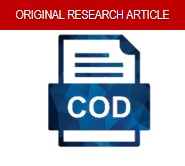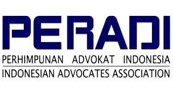Artificial Intelligence and Criminal Liability: A Preliminary Study within the Indonesian Legal System
DOI:
https://doi.org/10.46924/jihk.v7i2.330Keywords:
Artificial Intelligence, Criminal Law, Criminal LiabilityAbstract
The rapid development of Artificial Intelligence (AI) presents significant challenges for Indonesian criminal law, particularly in determining accountability for actions involving AI, whether as an auxiliary tool or as an indirect perpetrator. This study seeks to examine the current criminal law framework, identify deficiencies in the Criminal Code (KUHP), the Electronic Information and Transactions Law (ITE Law), and related regulations, and assess the applicability of alternative liability models, including vicarious liability and strict liability. Employing a normative juridical approach—through the analysis of statutory provisions, legal doctrine, and international case studies—this research finds that national regulations remain predominantly reactive, fail to adequately anticipate the emergence of autonomous AI, and encounter technical evidentiary challenges arising from the ‘black box’ phenomenon. The findings suggest that alternative liability models are better suited to the distinctive characteristics of AI. The study concludes that a responsive reformulation of criminal law norms is essential to ensure legal certainty, protect victims, and facilitate effective law enforcement in the context of AI.
Downloads
References
Journals
Astiti, Ni Made Yordha Ayu. “Strict Liability of Artificial Intelligence: Pertanggungjawaban Kepada Pengatur AI Ataukah AI Yang Diberikan Beban Pertanggungjawaban?” Jurnal Magister Hukum Udayana 12, no. 4 (2023): 962–80. https://doi.org/10.24843/JMHU.2023.v12.i04.p14.
Balasubramaniam, Nagadivya, Marjo Kauppinen, Antti Rannisto, Kari Hiekkanen, and Sari Kujala. “Transparency and Explainability of AI Systems: From Ethical Guidelines to Requirements.” Information and Software Technology 159 (2023): 1–15. https://doi.org/10.1016/j.infsof.2023.107197.
Hibatulloh, Beryl Helga Fredella. “Upaya Penegakan Hukum Terhadap AI (Artificial Intelligence) Sebagai Subjek Hukum Pidana Dalam Perspektif Kriminologi.” Taruna Law: Journal of Law and Syariah 3, no. 1 (2025): 87–98. https://doi.org/10.54298/tarunalaw.v3i01.300.
Kan, Celal Hakan. “Criminal Liability of Artificial Intelligence from the Perspective of Criminal Law: An Evaluation in the Context of the General Theory of Crime and Fundamental Principles.” International Journal Of Eurasia Social Sciences 15, no. 55 (2024): 276–313. https://doi.org/10.35826/ijoess.4434.
Maharani, Bondan Ayu, Hasnaa Amelia Rahajeng, Triana Triana, and Zahra Dwi Arianti. “Perlindungan Hukum Masyarakat Dari Dampak Negatif Penggunaan AI.” Media Hukum Indonesia 3, no. 2 (2025): 666–73. https://ojs.daarulhuda.or.id/index.php/MHI/article/view/1939.
Nasman, Nasman, Pudji Astuti, and Dita Perwitasari. “Etika Dan Pertanggungjawaban Penggunaan Artificial Intelengence Di Indonesia.” Jurnal Hukum Lex Generalis 5, no. 10 (2024): 1–15. https://ojs.rewangrencang.com/index.php/JHLG/article/view/622.
Putri, Feby Milenia Yahya Krisna, Hary Abdul Hakim, Chrisna Bagus Edhita Praja, and Gerald Espares. “Thinking the Future Potential of Artificial Intelligence in Law Enforcement.” Perspektif Hukum 24, no. 2 (2024): 269–294. https://doi.org/10.30649/ph.v24i2.319.
Rondonuwu, Natalie Tresye, Donna Okthalia Setiabudhi, and Carlo A Gerungan. “Pengaturan Penggunaan Kecerdasan Buatan Dalam Tugas Profesional Hakim Di Indonesia.” Lex Privatum 15, no. 2 (2025): 1–12. https://ejournal.unsrat.ac.id/index.php/lexprivatum/article/view/60761.
Setiawan, Ardi Dwi, and Indung Wijayanto. “Tinjauan Yuridis Pertanggungjawaban Pidana Dalam Tindak Pidana Yang Melibatkan Artificial Intelligence.” Yustisi: Jurnal Hukum Dan Hukum Islam 12, no. 2 (2025): 174–187. https://doi.org/10.32832/yustisi.v12i2.19535.
Setyawan, Vincentius Patria. “Prospek Pengaturan Kecerdasan Buatan Sebagai Subjek Hukum Pidana Dan Model Pertanggungjawabannya.” Sultan Adam: Jurnal Hukum Dan Sosial 3, no. 1 (2025): 115–122. https://doi.org/10.71456/sultan.v3i1.1214.
Sofian, Ahmad. “Konsepsi Subjek Hukum Dan Pertanggungjawaban Pidana Artificial Intellegence.” Halu Oleo Law Review 9, no. 1 (2025): 13–26. https://doi.org/10.33561/holrev.v9i1.129.
Sulistio, Faizin, and Aizahra Daffa Salsabilla. “Pertanggungjawaban Pada Tindak Pidana Yang Dilakukan Agen Otonom Artificial Intelegence.” Unes Law Review 6, no. 2 (2023): 5479–90. https://doi.org/10.31933/unesrev.v6i2.1209.
Walton, Douglas, Giovanni Sartor, and Fabrizio Macagno. “An Argumentation Framework for Contested Cases of Statutory Interpretation.” Artificial Intelligence and Law 24, no. 1 (2016): 51–91. https://doi.org/10.1007/s10506-016-9179-0.
Wahyudi BR. “Tantangan Penegakan Hukum Terhadap Kejahatan Berbasis Teknologi AI.” Innovative: Journal Of Social Science Research 5, no. 1 (2025): 3436–3450. https://doi.org/10.31004/innovative.v5i1.17519.
Proceedings
Ikawati, Linda, Sulaiman Sulaiman, and Muhammad Fahri Huseini. “Masa Depan Penegakan Hukum Indonesia: Sistem Peradilan Pidana Berbasis Kecerdasan Buatan (AI).” In Prosiding Seminar Nasional Ilmu Hukum, 1–18. Pemalang: Asosiasi Peneliti dan Pengajar Ilmu Hukum Indonesia, 2024. https://doi.org/10.62383/prosemnashuk.v1i1.19.
Books
Muladi, Muladi, and Barda Nawawi Arief. Teori-Teori Dan Kebijakan Pidana. Bandung: Alumni, 2010.
Pagallo, Ugo. The Laws of Robots: Crimes, Contracts, and Torts. Law, Governance and Technology Series. Dordrecht: Springer, 2013. https://doi.org/10.1007/978-94-007-6564-1.
Working Papers
The European Parliament. “European Parliament Resolution of 16 February 2017 with Recommendations to the Commission on Civil Law Rules on Robotics.” Strasbourg: The European Parliament, 2017. https://www.europarl.europa.eu/doceo/document/TA-8-2017-0051_EN.html.
Downloads
Published
Issue
Section
License
Copyright (c) 2025 Novelina Mutiara Sariati Hutapea, Desy Kartika Caronina Sitepu, Jenriswandi Damanik, Srikandi Karmeli Lusia Sianipar

This work is licensed under a Creative Commons Attribution 4.0 International License.
Authors who publish with this journal agree to the following terms:
- Copyright on any article is retained by the author(s).
- The author grants the journal, the right of first publication with the work simultaneously licensed under a Creative Commons Attribution License that allows others to share the work with an acknowledgment of the work’s authorship and initial publication in this journal.
- Authors are able to enter into separate, additional contractual arrangements for the non-exclusive distribution of the journal’s published version of the work (e.g., post it to an institutional repository or publish it in a book), with an acknowledgment of its initial publication in this journal.
- Authors are permitted and encouraged to post their work online (e.g., in institutional repositories or on their website) prior to and during the submission process, as it can lead to productive exchanges, as well as earlier and greater citation of published work.
- The article and any associated published material is distributed under the Creative Commons Attribution 4.0 International License



 Sinta ID:
Sinta ID: 


















